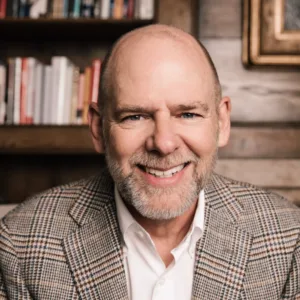- Development
- August 16, 2023
- Mark Miller
The Peter Principle
The Peter Principle was published in 1969. The premise: often people are promoted, again and again, until they reach their level of incompetence. If left unchecked, more than the individual suffers; the organization can become stuck because so many people have risen to their level of incompetence.

The Peter Principle was published in 1969. The premise: often people are promoted, again and again, until they reach their level of incompetence. If left unchecked, more than the individual suffers; the organization can become stuck because so many people have risen to their level of incompetence.
How do you beat the Peter Principle? The answer depends on whether you are looking at it as an individual or an organization. Let’s take a quick look at a prescription for both…
As an individual…
Commit to life-long learning. The best antidote I know for individuals is to continue to grow. Our capacity to grow determines our capacity to lead. If you suspect you may be approaching your personal limits regarding contribution, double down on your development efforts.
Become a student of senior leaders. Men and women who have risen to high levels of influence have done so because of a set of demonstrated behaviors. Pay attention and learn what is valued in your organization. Do your senior leaders ask great questions? I’m guessing they do. You can learn to do that. Do your senior leaders memorize the names of employees? You can do that, too. You and I do not control our opportunities, but we do control our readiness. Senior leaders may be the guide we need.
As an organization…
Recognize, don’t promote, people. The impact of this strategy is huge in an organization. Here’s the fundamental difference – to recognize means an individual is already performing at the next level. Promotions, on the other hand, are often based on potential. The world is full of people with unrealized potential.
Correct your mistakes. If you have promoted on potential, and that potential never materializes, take corrective action. Your options are limited once you realize you’ve made a mistake. You can move the person, demote the person, change the scope of his or her assignment, or terminate. None of these are easy decisions. That’s why I’m a big fan of recognition.
Create the expectation for personal growth. Senior leaders must establish a cultural mandate for people to grow. A “grow or go” expectation can combat the Peter Principle at all levels. If people aren’t growing, you’ll forever struggle to fill your leadership pipeline. One best practice in this area is to require every employee to have a written personal development plan. You can take accountability to another level by requiring sign-off on the plan by the supervisor.
Create a systematic way to evaluate leaders and emerging leaders. We use a process called a Leadership Talent Review. The concept is simple: Predetermine what you expect from leaders and then evaluate them against those expectations.
Be clear on the expectations at all levels. It is extremely difficult to recognize someone performing at the next level if you don’t know what you are looking for at the next level. As an example, if you want senior leaders to see the big picture, you can look for this attribute among your candidates for an open position.
Don’t get caught by the Peter Principle – as an individual or an organization. If your career stalls, it should be because your organization didn’t need another senior leader, not because you were deemed incompetent in your current role.
Comments on The Peter Principle

Mark Miller
Mark Miller is a Wall Street Journal and international best-selling author, communicator, and the former Vice President of High Performance Leadership at Chick-fil-A. Mark’s leadership journey at Chick-fil-A spanned 45 years, and today, he serves as the Co-Founder of Lead Every Day. Mark began writing almost twenty years ago, and with over one million books in print in more than twenty-five languages, his global impact continues to grow.